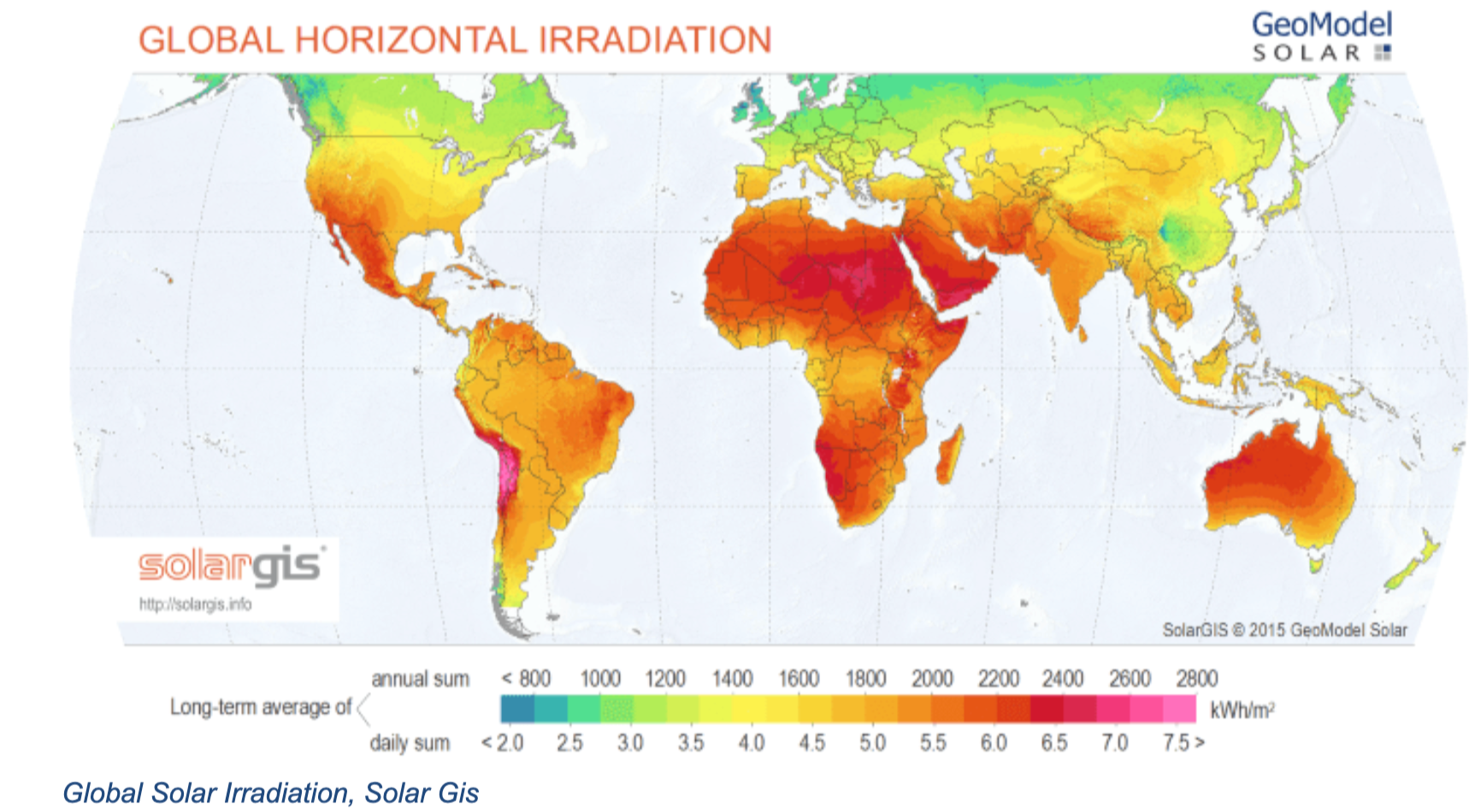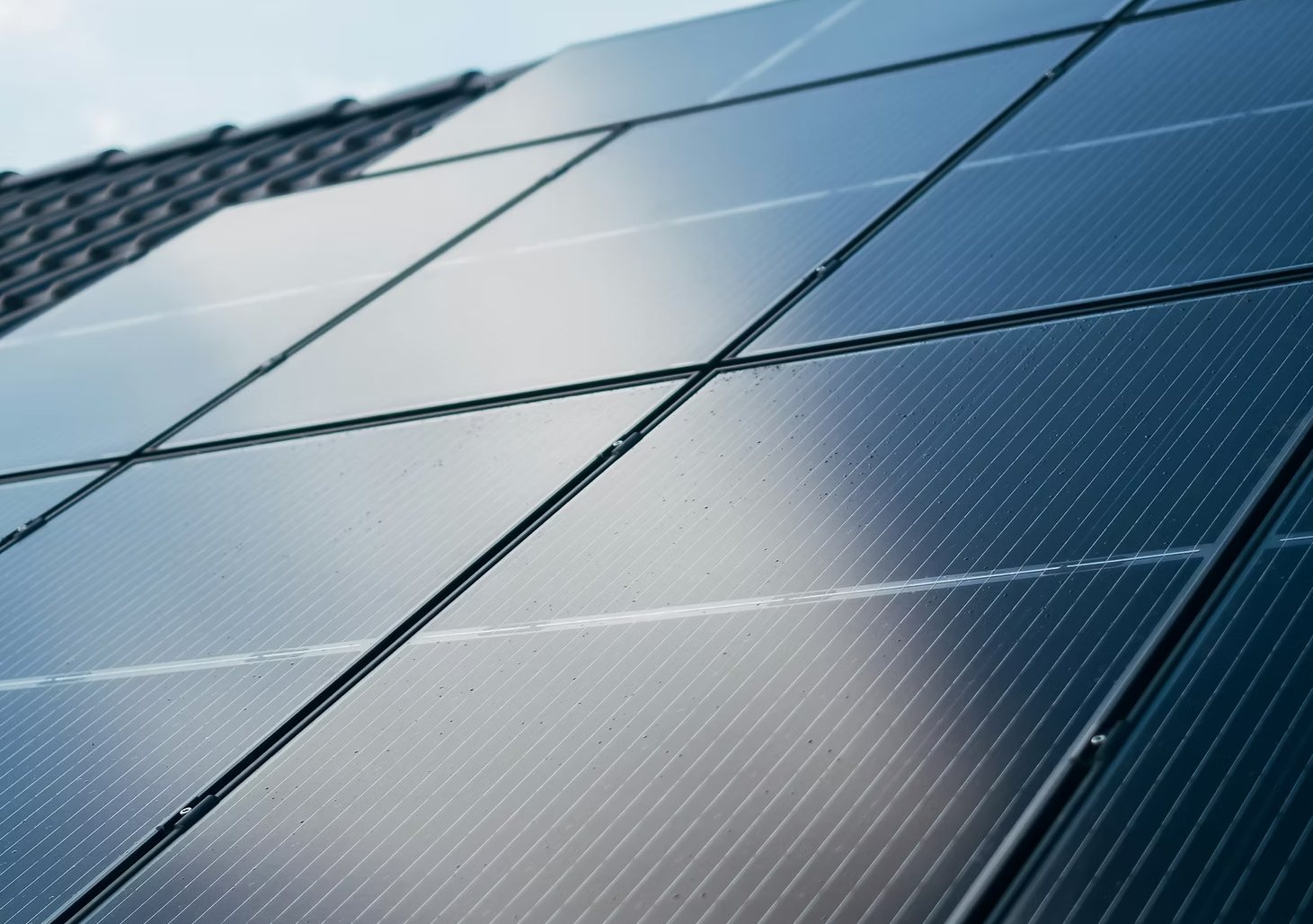· 5 min read
Background
Africa is commonly referred to as the Sun continent. It’s a fact that it’s the place where the Sun shines the most. The Sun is the source of life on earth and East Africa alone has enough solar potential to power the whole world, with Sudan having a solar potential of 87.8 trillion kWh. Almost all countries in Africa have solar potentials above the highest in Europe. Despite this, European countries with far less solar potential such as Germany, Italy, United Kingdom and France are generating more solar energy than any African country. Africa is sitting on an untapped goldmine. At the same time, 50% of people in Sub-Saharan Africa have no access to electricity. 75% of the people without access to electricity in the world live in Sub-Saharan Africa. Sub-Saharan Africa is in the heart of darkness. This darkness forces poverty, with 40% of Sub-Saharan Africa living under the poverty line of 2 US$ per day. People can’t work effectively without energy. People can’t live comfortably without energy. Steam power and water power created the first industrial revolution. Electricity created the second revolution. Energy is and always has been the key to prosperity. Africa’s energy can and must come from the sun. The evidence in the favor of solar potential is overwhelming yet, the progress in African deployment of solar remains slow. We need to change this and dispel the myths that are holding Africa back.
Myth 1: Fossil Fuels are much cheaper
Fossil Fuels may be much cheaper for many developed countries but it is factually incorrect that it is much cheaper for all of Africa. In fact, a 2011 report by the EU Commission into Renewable Energies in Africa compared the solar power to off-grid diesel (two main alternatives particularly for rural Africa) and found that Solar Power was already cheaper than off-grid diesel for the majority of Africa.
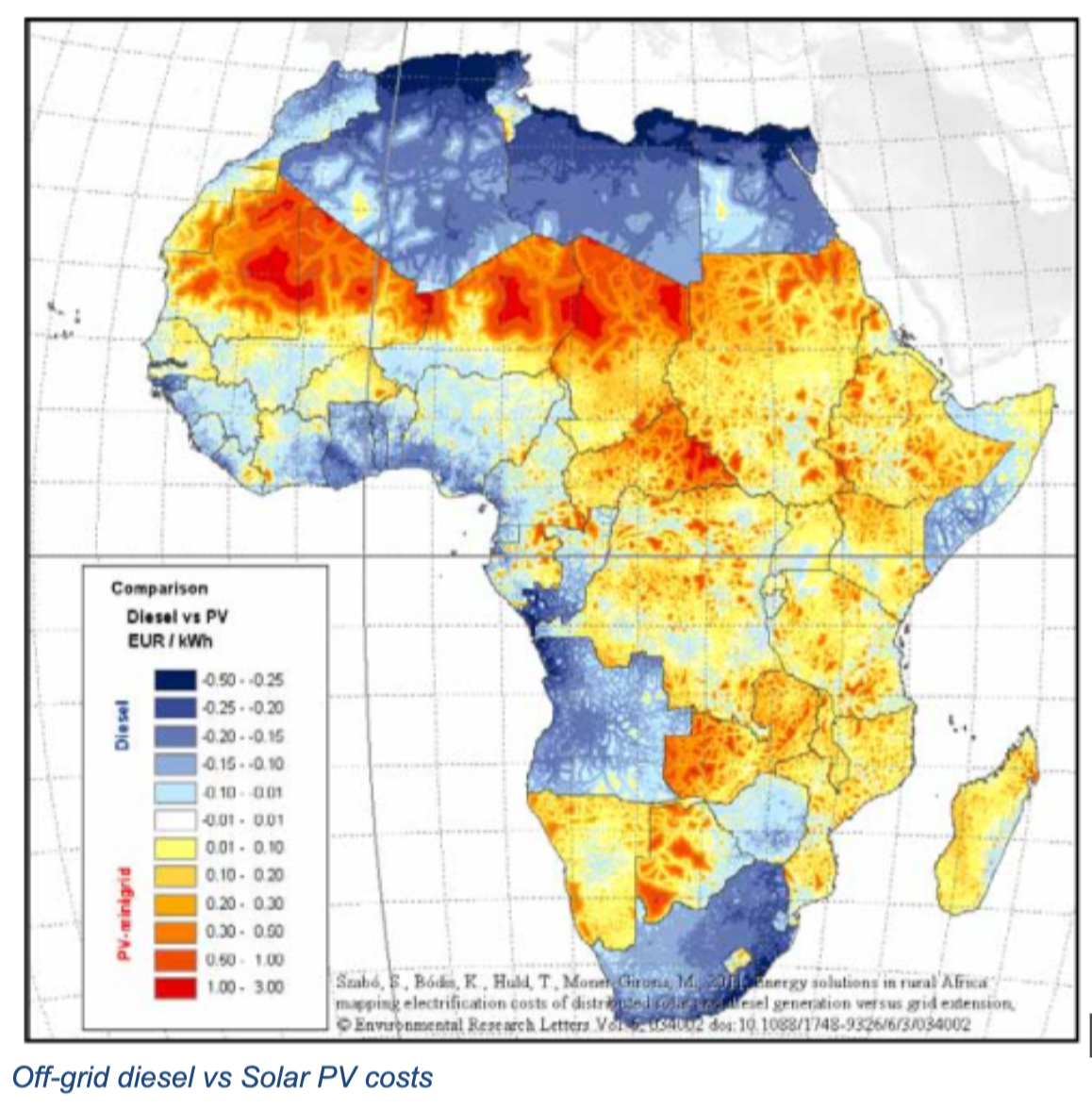
Since then Solar photovoltaic (PV) costs have exceeded all projections (IEA, IRENA, etc.) and dropped by 80%. It continues to drop as the technology becomes more mature, meaning that Solar is financially the most attractive energy technology to invest for Africa.
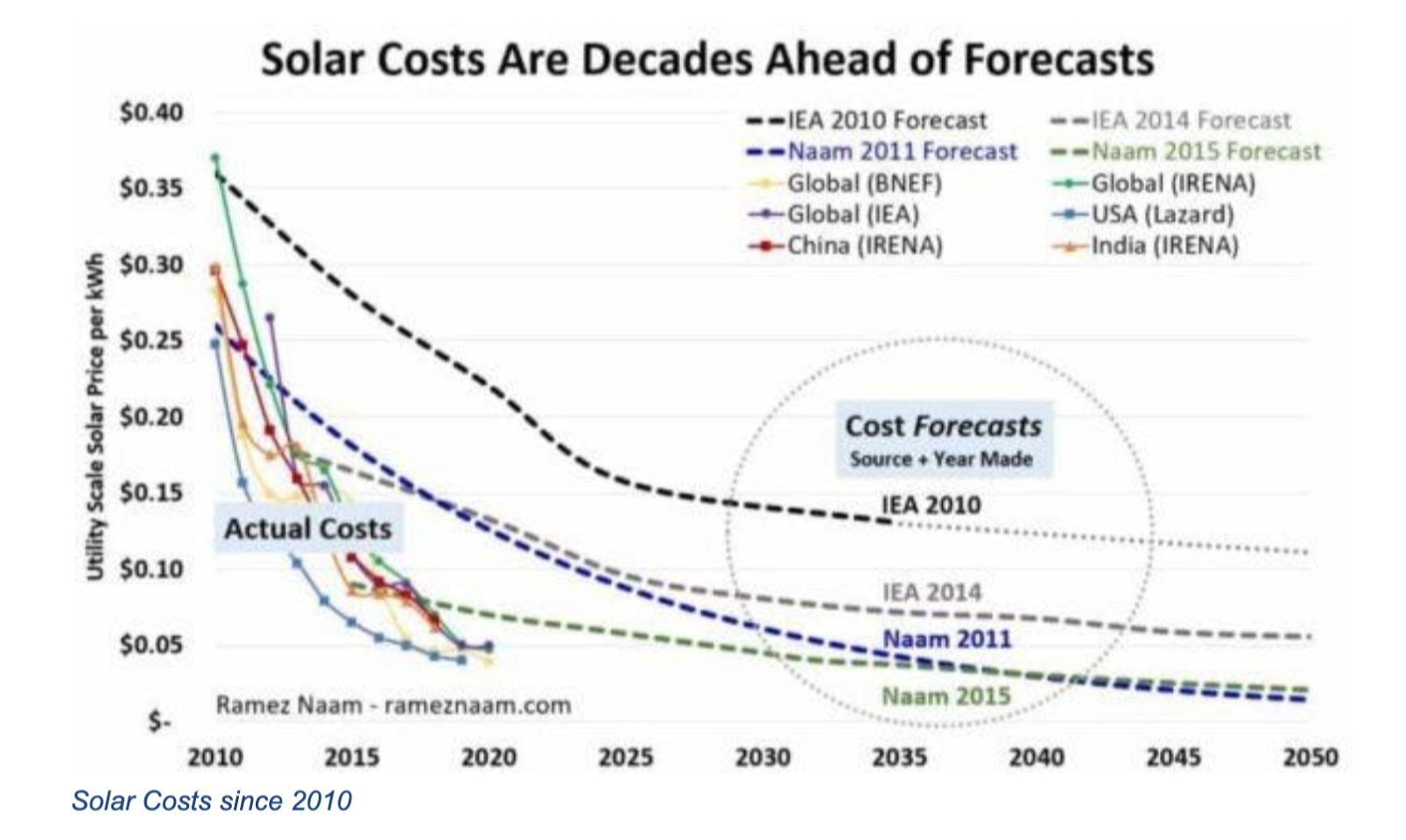
Myth 2: Energy isn’t the big issue
Governments have many economic priorities such as health, crime, political stability that they can often prioritize above energy. However it is false that energy isn’t the big issue. A 2012 World Bank Group Report into Performance of Manufacturing Firms in Africa showed electricity as the biggest constraint to Manufacturing. I’m proud to say Ghanaian President Nana Akufo-Addo has announced that he will stop selling cocoa to Switzerland as it’s exploiting Ghana, enforcing poverty by paying low prices for cocoa and doing value added activities outside of Ghana. If we want more value-added activities to be done in Ghana, such as in the case of cocoa - we will need energy to power the machines, energy to regulate the temperatures, etc. Industry creates jobs, creates infrastructure, creates tax revenues. Without energy we can’t grow industry and so we can’t lift people out of poverty. Energy is the big issue.
Myth 3: It’s impossible due to lack of infrastructure and expertise
Technical Expertise will be needed to develop, build, operate and maintain solar power. Likewise, infrastructure will be needed to make solar power accessible to the right people at the right time. However, it’s not true that the infrastructure and expertise must come before the technology. We have living proof of the middle east which had no existing expertise or infrastructure when it discovered oil & gas and it developed these simultaneously to create cities of prosperity such as Dubai and Doha.
Myth 4: Renewables are riskier than Fossil Fuels
A common fable is that renewables are riskier because they are susceptible to changing weather conditions, in the case of sun and wind. However this doesn’t take into account the risk of the whole supply chain. The recent energy crisis in Europe, with soaring gas prices shows that Fossil fuels are also vulnerable to lack of availability. A 2021 UK Case study by IChemE found that Solar energy had the least risk and Oil & Gas had the most risk when considering the full supply chain.
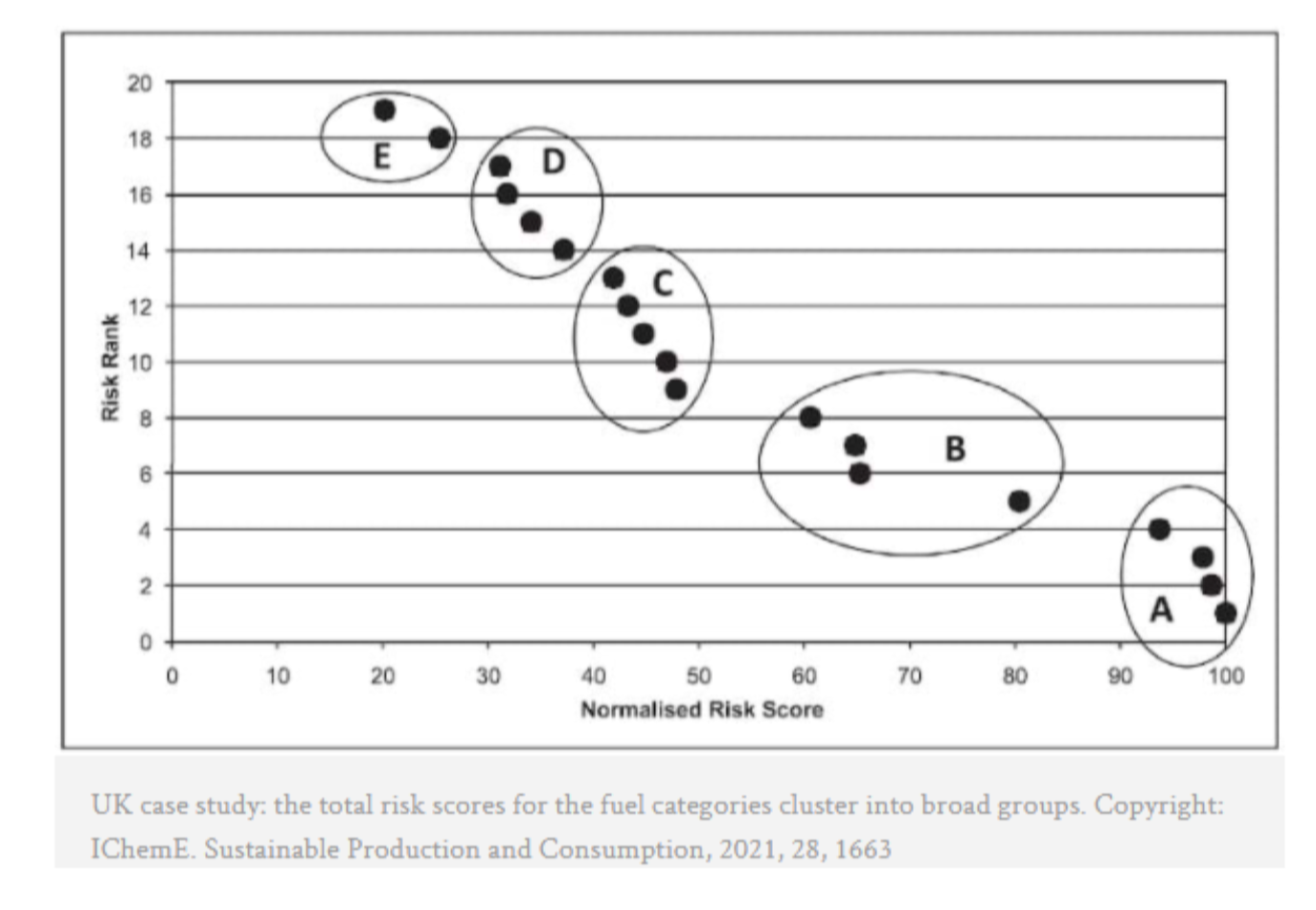
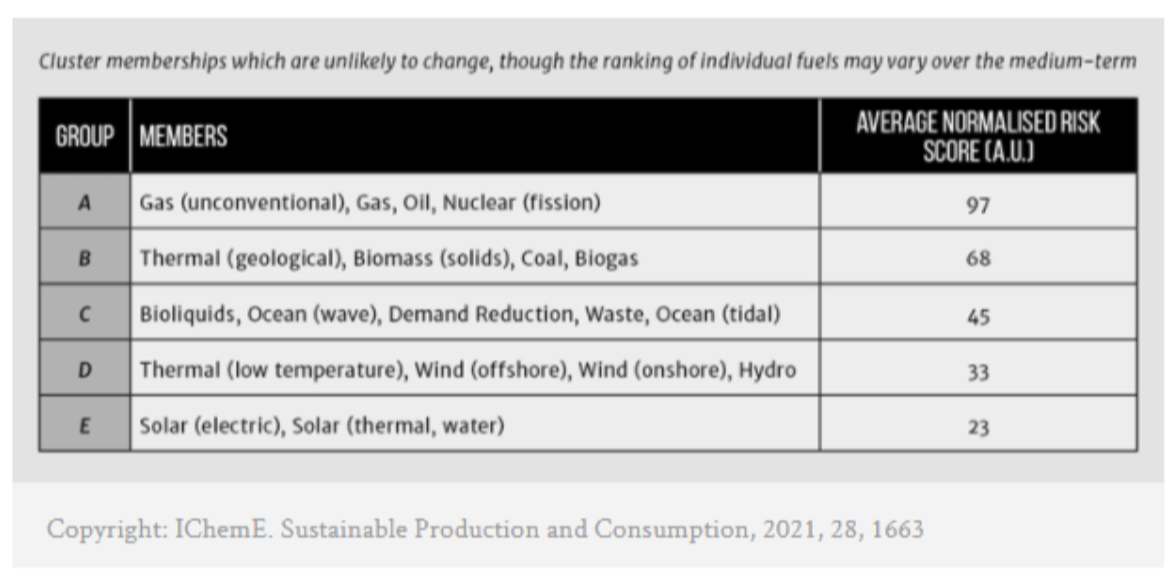
Myth 5: Africa can’t afford solar energy
Africa is poor, with 40% of Sub-Saharan Africa living under the poverty line of 2 US$ per day but that isn’t a reason that it can’t afford solar energy. That is a reason why it needs to invest in solar energy. Not investing in energy of any sort would be condemning its citizen to continue to live in the dark, in poverty; without hope in the form of job opportunities. Investing in energy is breaking the cycle of poverty, to transform, to revolutionize…just as in the 1st and 2nd industrial revolution. Energy empowers prosperity for everyone. So the only real choice is whether Africa invests in fossil fuels or invest renewables. The UN research shows that almost all of Africa is already dry or at moderate to very high risk of becoming dry. Fossil fuels are known to cause climate change; choosing fossil fuels would also be condemning African citizens to the consequences of fossil fuel emissions, which will be felt hardest in Africa. So although some may say Africa can’t afford solar, the real truth is that Africa can’t afford not to invest in solar.
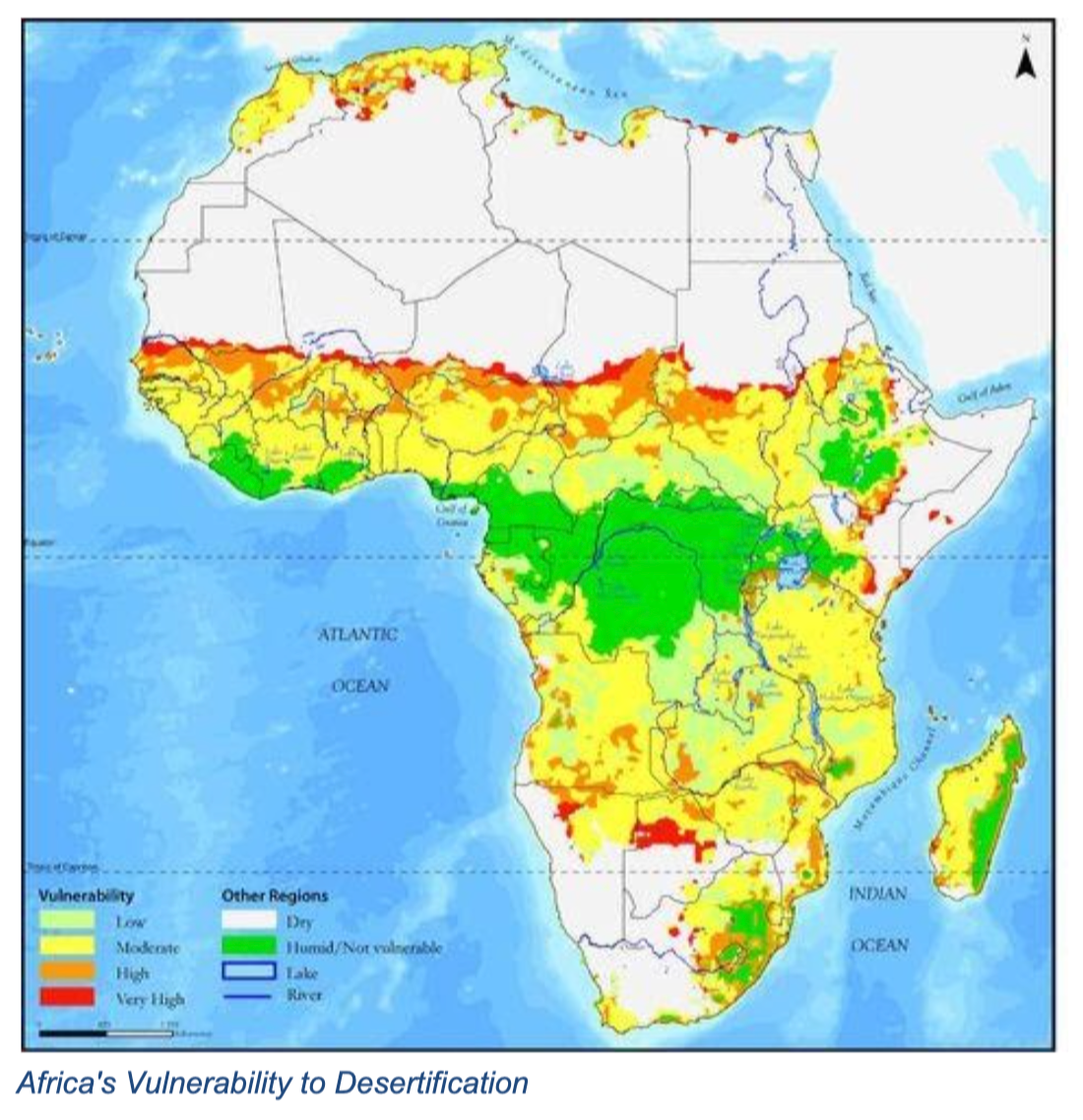
Recommendations: Steps to Finance the Bright Future
- Prioritize invest in Solar Energy in National Budgets
- Cooperate with Wealthier countries to secure investments
- Engage the diaspora for access to finance and expertise
- Empower Charity: create foundations that promote and facilitate donations from individuals globally towards African solar energy
Closing Remarks
The solar potential of the African continent is undeniable, yet still it is untapped. Africa should choose to embrace solar energy as the key to its prosperity and choose to do so immediately. It can’t afford not to and there’s no compelling reasons not to. So it’s only a matter of overcoming barriers such as finance to create a bright future.
Future Thought Leaders is a democratic space presenting the thoughts and opinions of rising Energy & Sustainability writers, their opinions do not necessarily represent those of illuminem.
